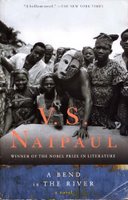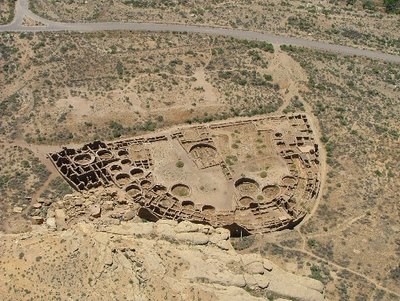 I
I In Naipaul’s A Bend in the River, the protagonist and narrator, Salim, moves from the east African coast to start a new business – and with it, he hopes, a new life – in the African interior. Salim’s ancestors are from Gujarat in India but his family has lived on the African coast for many generations; they are a family of traders, with links to the Indian Ocean coasts of Arabia, Persia and India. In Salim’s words: “The coast was not truly African. It was an Arab-Indian-Persian-Portuguese place, and we who lived there were really people of the Indian Ocean. True Africa was at our back.”
Salim decides to leave his family and move by himself to a town in Central Africa at the bend of a great river; the town, the river and the country, though very obviously Kisangani at the bend of the Zaire and in what was then the Zaire (the novel is set in the 60s and 70s), are never mentioned. Naipaul, presumably, uses this technique so he can make certain abstractions that might have otherwise not been possible.
The novel is essentially an account of the tensions of being an expatriate – rootless, and with nothing to return to – in a place that is coming painfully to terms with modernity. Naipaul’s spare and contemplative prose brings these tensions sharply into focus. His capacity for historical understanding and self-assessment is remarkable; and his insightful but sometimes sweeping generalizations of civilizations and peoples are there throughout the novel.
Here is Salim, writing of his family’s lack of understanding of themselves:
“My family was Muslim. But we were a special group. We were distinct from the Arabs and other Muslims of the coast; in our customs and attitudes we were closer to the Hindus of northwestern India, from which we had originally come. When we had come no one could tell me. We were not that kind of people.” And later: “ Neither my father nor my grandfather could put dates to their stories. Not because they had forgotten or were confused; the past was simply the past.”Whatever knowledge that came to Salim of the past achievements of his coastal community came, ironically, from the ruling Europeans:
“All that I know of our history and the history of the Indian Ocean I have got from books written by Europeans. If I say our Arabs in their time were great adventurers and writers; that our sailors gave the Mediterranean the lateen sail that made the discovery of the Americas possible; that an Indian pilot led Vasco da Gama from East Africa to Calicut; that the very word cheque was first used by our Persian merchants – if I say these things it is because I have got them from European books. They formed no part of our knowledge or pride. Without Europeans, I feel, all our past would have been washed away, like the scuff marks of fishermen on the beach outside our town.”Of Europeans – and this is a classic example of one of Naipaul’s illuminating abstractions – Salim says:
“Europeans could do one thing and say something quite different; they could act in this way because they had an idea of what they owed to their civilization It was their great advantage over us. The Europeans wanted gold and slaves, like everybody else; but at the same time they wanted statues put up to themselves as people who had done good things for the slaves. Being an intelligent and energetic people, and at the peak of their powers, they could express both sides of their civilization; and they got both the slaves and the statues.”
II
People from many different tribal backgrounds live in the Central African town that Salim has moved into; they have come from villages around to make a living in the town. Even in periods when things are going well and business is booming there is always a feeling that collapse will come soon, that the town will go back to being a ruin just has it had at the time of the country’s independence. Salim writes, in this passage, of how different it is for the Africans of the region than it is for the expatriates in town from various countries:
“I began to understand how simple and uncomplicated the world was for me. For people like myself and Mahesh” – Salim’s friend of Indian origin – “and the uneducated Greeks and Italians in our town, the world was really a simple place. We could understand it, and if too many obstacles weren’t put in our way we could master it. It didn’t matter that we were far away from our civilization, far away from the makers and doers. It didn’t matter that we couldn’t make the things we liked to use, and as individuals were even without the technical skills of the primitive people [Africans of the region]. In fact, the less educated we were the more at peace we were, the more easily we were carried along by our civilization or civilizations.What Naipaul seems to be suggesting is that being part of a civilization or a heritage – however distant you may be from it or however peripherally you may be associated with it: just as the Indians, Greeks and Italians in town were – could somehow give you a certain dignity and a sense of your own importance. What he is also suggesting is that the backwardness of the Africans Salim is writing of is such that they have nothing to look back to. There’s a hint of condescension and snobbishness in this assessment; it is a feature of Naipaul’s writings; in other parts of the novel Naipaul’s prejudices are more directly stated (more on that in the next post). Presumably the backwardness or primitivism Naipaul is talking about refers to village ways, ancestor-worship and animist ways, ways that were mostly self-contained and had never been in any broad sense part of a larger empire or tradition. And the encounter of these backward Africans with modernity, with European achievements and colonization had left a wound; it had filled African minds like those of Ferdinand’s with “all kinds of junk”.
“For Ferdinand” – an African young man that Salim knows in the town – “there was no such possibility. He could never be simple. The more he tried, the more confused he became. His mind wasn’t empty, as I had begun to think. It was a jumble, full of all kinds of junk.”
III
In some roundabout way, this idea of having a tradition or a heritage to fall back upon brought to my mind a documentary I had seen two years ago on PBS.
The documentary was on Chacoan society, which had flourished in the arid canyon-country of New Mexico from the eighth to tenth centuries and had then declined. The focus of the documentary was mostly on the achievements of Chacoans: their comprehensive knowledge of astronomy hinted at by the precise alignment of the roads, by the nuances in their architecture – multistoried buildings and plazas (the picture below shows an aerial view of one of these plazas) – and by the sophistication of the solstice marker on a rock of one of the buttes.

The program also featured short interviews with the team of archaeologists and researchers involved in the attempt to understand the religious and cultural sensibilities of the Chacoans. One of the team members was from a Puebloan tribe of the southwestern United States. He said that the Chacoan period with its achievements indicated something very important. “It shows,” he said, “that our people too were very intelligent.”
The Puebloans are descendents of the Chacoans, but they do not always react to their Chacoan past like this. There’s generally a lot more ambivalence: there’s a shroud of secrecy about the Chaco period, and a tendency to reject and disown it because oral histories suggest that it had ended violently. But the Puebloan man’s comment in the documentary that his people had had unique capabilities (strange that something like that had to be stated) was really a response to contemporary realities: so much today is defined by the West, and strong has been its labeling of other cultures, that claiming past accomplishments – the grandeur and ambition of which is absent today – becomes important.
I came across something similar recently in a program on the history of the Sahara; and what I heard was like an echo of what the Puebloan man had said.
A brief part of the documentary was on the kingdom of Timbuktu in Western Africa, in present day Mali. At its height during the first half of the second millennium, the kingdom had benefited immensely from the trans-Saharan trade in gold, slaves and other commodities. There had been a famous university and an extensive library. Today the town is an impoverished state. But from what was being shown in the program, it appeared that the library, or at least some of its books were still intact. There was a brief interview of a Malian man – probably a historian or scholar – dressed traditionally in a tunic and cap. He said: “This,” [the library with all its evidence of learning], “shows that we Africans have a past as well. Not all our stories were oral; we had a written tradition too.”
It was there again: the urge to talk back, redress prevalent attitudes; and the glories of the past and his knowledge of his own history had given the Malian scholar a strong sense of himself.
One of the most eloquent voices in this business of talking back, of arguing and pointing out the prejudices that lie behind Western perceptions of Africa, has been that of the Nigerian writer Chinua Achebe. Achebe, in many of his essays, systematically lays bare these perceptions that come cloaked and hidden in various forms. He does it with reasoned arguments, with wit and sarcasm.
But more of that in the next post – this post has already gotten too long and I've digressed a bit :)
1 comment:
Divx online noktafilim.com film izlemek harika. ucuz bitkisel zayıflama hapı burada. Anlık bölgesel zayıflama hapı resmi satış sitesi. Kilo vermek sağlıklı zayıflama hapı le daha kolay. cildinizi kozmetik ürünleri ile gençleştirin. Hızlı nöbetçi eczane arama. Haydi stop ter le hayata tutun. Düzleştirin çatlak kremi ile cildinizi. Gücünüze güç katın jinsei kolye ile. Kaliteli sağlık ürünleri resmi sitesi. Hızlı diyet hapı le kilo verme. Yaşamınızı elektronik market ürünleriyle kolaylaştırın.
Post a Comment